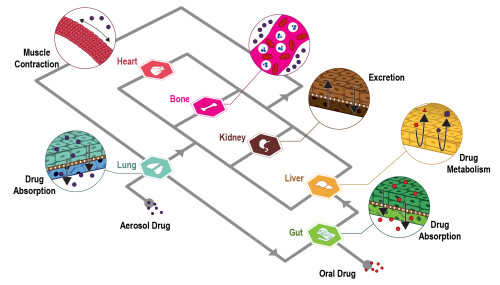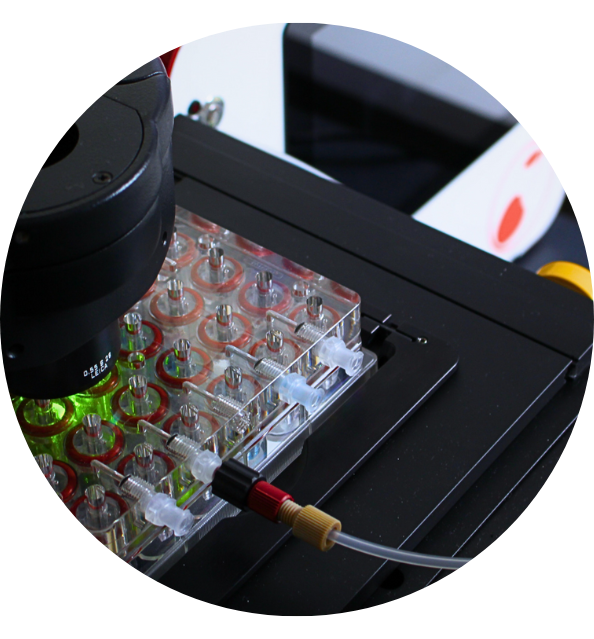Introduction
The researchers created a microfluidic organ-on-chip solution with integrated electrochemical microsensor arrays enabling compartmentalized matrix-based organoid culture from single stem cells and real-time recording of metabolic data.

These patient-derived stem cells are an attractive model for testing drug efficacy and tolerance to personalized chemotherapy because they mimic the individual patient’s tumor in vitro. Culture conditions and cell metabolism are not accessible on a pericellular level in many organ-on-chip systems, and therefore cannot be manipulated or confirmed in situ.
Abstract
The author states that “Three-dimensional cell cultures using patient-derived stem cells are essential in vitro models for more efficient and individualized cancer therapy. Currently, culture conditions and metabolite concentrations, especially hypoxia, are often not accessible continuously and in situ within microphysiological systems.
However, understanding and standardizing the cellular microenvironment are the key to successful in vitro models. We developed a microfluidic organ-on-chip platform for matrix-based, heterogeneous 3D cultures with fully integrated electrochemical chemo- and biosensor arrays for the energy metabolites oxygen, lactate, and glucose. Advanced microstructures allow straightforward cell-matrix integration with standard laboratory equipment, compartmentalization, and microfluidic access.
Single, patient-derived, triple-negative breast cancer stem cells develop into tumor organoids in a heterogeneous spheroid culture on-chip. Our system allows unprecedented control of culture conditions, including hypoxia, and simultaneous verification by integrated sensors.
Beyond previous works, our results demonstrate precise and reproducible on-chip multi-analyte metabolite monitoring under dynamic conditions from a matrix-based culture over more than one week. Responses to alterations in culture conditions and cancer drug exposure, such as metabolite consumption and production rates, could be accessed quantitatively and in real-time, in contrast to endpoint analyses.
Our approach highlights the importance of continuous, in situ metabolite monitoring in 3D cell cultures regarding the standardization and control of culture conditions, and drug screening in cancer research. Overall, the results underline the potential of microsensors in organ-on-chip systems for a successful application, e.g. in personalized medicine.”
Source
Dornhof J, Kieninger J, Muralidharan H, Maurer J, Urban GA, Weltin A. Microfluidic organ-on-chip system for multi-analyte monitoring of metabolites in 3D cell cultures. Lab Chip. 2021 Dec 1. doi: 10.1039/d1lc00689d. Epub ahead of print. PMID: 34851349.


